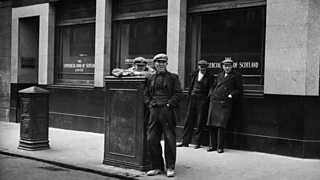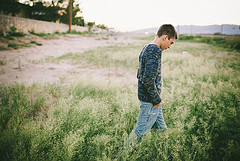
Image by Aslan Media*
Testing, testing, one, two three. Here in the UK (and elsewhere I am sure), we are in the testing season; ‘tis the season when the educational lives of teenagers (as well as pre/post-teens in many cases) are put under scrutiny to ‘determine’ their future. This ritual, particularly written timed exams, puts huge pressure on young people, often when they are at a critical time of their emotional development. A survey in 2016 carried out by ChildLine, found a 20% increase in the numbers of children needing counselling, because of fear of failure, wanting to please their parents; that triggered eating disorders, anxiety attacks, depression and inability to sleep. The Conservative government has even increased the type of written testing that causes this worrying increase in stress for young people.
The second decade of a person’s life is one of the most important; it is when they move from dependence towards independence, before in later years hopefully moving to interdependence in their familial relationship. And of course, with the Internet their lives are displayed on social media – their peers can amount to thousands of people. It is when the extremes of experience are at their height – when they are doing many things for the first time (sex, drink, drugs, travel, voting, working).
 Julia Webb’s poignant (and wonderfully titled) poem ‘because my home town has a hand between its legs’, encapsulates this precarious, exciting, and frightening time from the perspective of girls/young women, “we spend too much time in public toilets – /smoking, scratching boy’s names onto cubicle doors,/rolling clear lip gloss onto kissable lips.” We all remember hanging out on the streets, when there may have not been a youth club, and the pubs were beyond reach. “Spaces find you: the concrete slope under the road bridge,/the shadowy space beneath the walkways at the bottom of the flats.” And sadly, the vulnerability and dangers that one can be open to, “make sure your Mum’s friend never gives you a ride home alone.”
Julia Webb’s poignant (and wonderfully titled) poem ‘because my home town has a hand between its legs’, encapsulates this precarious, exciting, and frightening time from the perspective of girls/young women, “we spend too much time in public toilets – /smoking, scratching boy’s names onto cubicle doors,/rolling clear lip gloss onto kissable lips.” We all remember hanging out on the streets, when there may have not been a youth club, and the pubs were beyond reach. “Spaces find you: the concrete slope under the road bridge,/the shadowy space beneath the walkways at the bottom of the flats.” And sadly, the vulnerability and dangers that one can be open to, “make sure your Mum’s friend never gives you a ride home alone.”
This all makes me wonder what decade is the most satisfying, rewarding, of our lives; is it those teenage years of first-time experiences, the independence of your 20s (and30s if you’re lucky), or the later freedom of old age if you have made it that far with your suitcase of faculties still intact?
Julia Webb grew up on a council estate in Thetford, Norfolk. She graduated from UEA’s poetry MA in 2011. She has had work in various journals and anthologies. Her first Collection “Bird Sisters” was published by Nine Arches Press in 2016. She is a poetry editor for Lighthouse.
because my home town has a hand between its legs
we spend too much time in public toilets –
smoking, scratching boy’s names onto cubicle doors,
rolling clear lip gloss onto kissable lips.
Imagine the shock of touching an unexpected pickled egg
buried deep inside his hot wrapper of chips.
No myths here, only rumours, streets you can’t walk down
because you have been warned off, boys it’s best not to look at
if you want to avoid the girl with frizz-hair and her pummelling fists.
Spaces find you: the concrete slope under the road bridge,
the shadowy space beneath the walkways at the bottom of the flats.
You’d rather lie through your teeth than confess your sins –
you might get a good hiding or your friend stops being your friend?
There’s a spyhole in the wall of your best friend’s bedroom
through which her brother watches her get undressed.
Shake the boy on the pushbike off at the entrance to the estate,
make sure your Mum’s friend never gives you a ride home alone.
 In the late 1940s, my father and his friend (both aged 14) were sitting in a pub in Glasgow. Two middle-aged drunk men were sat at the bar; they were well known local gang leaders from the notorious thirties. One of the men turned to other: “I dare you to stick this glass in my face,” he said in a fading act of bravado. “No, I dare you to stick it in my face,” replied his sparring partner. So the first man did. Blood burst from his face and the stools went over. But instead of going at each other, they left together to seek out the nearest hospital (Try reading
In the late 1940s, my father and his friend (both aged 14) were sitting in a pub in Glasgow. Two middle-aged drunk men were sat at the bar; they were well known local gang leaders from the notorious thirties. One of the men turned to other: “I dare you to stick this glass in my face,” he said in a fading act of bravado. “No, I dare you to stick it in my face,” replied his sparring partner. So the first man did. Blood burst from his face and the stools went over. But instead of going at each other, they left together to seek out the nearest hospital (Try reading  But let’s forget about the pubs’ demise for now and engage in a bit of nostalgia with Julia Webb’s funny and riotous poem, Friday Night King’s Head. This is a pub you would love to go to, if only to be a fly on the wall. “Some girl is pulling another girl’s hair and screaming, and some other girls are in the loo skinning up, and Andy is trying to force his way into the Ladies with his watery eyes, wet lips and flat cap.” Pubs are more than their insides, especially in the summer, when people spill out into the car park, the garden or the wall. “there’s a row going on outside, a Cortina is revving its engine, and someone is laughing, it sounds like a tree full of monkeys, but when you go outside it’s just the usual crowd sitting on the wall around the tree smoking.”
But let’s forget about the pubs’ demise for now and engage in a bit of nostalgia with Julia Webb’s funny and riotous poem, Friday Night King’s Head. This is a pub you would love to go to, if only to be a fly on the wall. “Some girl is pulling another girl’s hair and screaming, and some other girls are in the loo skinning up, and Andy is trying to force his way into the Ladies with his watery eyes, wet lips and flat cap.” Pubs are more than their insides, especially in the summer, when people spill out into the car park, the garden or the wall. “there’s a row going on outside, a Cortina is revving its engine, and someone is laughing, it sounds like a tree full of monkeys, but when you go outside it’s just the usual crowd sitting on the wall around the tree smoking.” 
